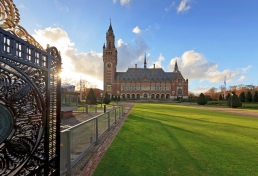
The Hague’s status as International City of Peace and Justice is proving increasingly beneficial to the local and regional economy. This is according to a Decisio study of the economic impact of international organisations on The Hague region.
With as many as 37,500 jobs, the city’s international organisations are the most important engine driving employment in The Hague and surrounding region. Medium- and low-skilled employees also benefit from this advantage. In addition, the international institutions account for as much as € 5.2 billion in indirect expenditures.
Deputy Mayor Ingrid van Engelshoven for Knowledge Economy, International Affairs, said: "Every single job at an international organisation is an extra job for the region. The effect of our status as International City of Peace and Justice is proving increasingly beneficial. This is a major advantage at a time when economic growth cannot be taken for granted."
Engine driving employment in The Hague
The Decisio study reveals that 19,500 employees in the region of The Hague are in work thanks to the presence of one of the international organisations. This is an increase of 7% compared to 2010. Indirect employment accounts for a further 18,000 jobs. These are primarily medium- and low-skilled workers employed in ICT, cleaning, security, communications and financial services, for example.
International status gives city financial edge
The international organisations in The Hague and surrounding region account for total combined expenditures of € 2.5 billion. Indirect expenditures, or spending by international employees, visitors and suppliers of the international organisations, total € 2.7 billion. Overall, the presence of the international organisations brings more than € 5.2 billion to the region.
International organisations show strong growth
The number of international organisations in the region of The Hague is on the increase. In 2005 The Hague was home to 72 international institutions and 95 embassies. By the end of 2012 there were 240 international organisations and 115 embassies in The Hague and the surrounding region. This means that The Hague is becoming increasingly international.
Every year these organisations receive tens of thousands of visitors. The city is also attracting international students in increasing numbers, with the figure currently around 5,000. In addition, the city plays host to increasing numbers of international conferences, the pinnacle being the Nuclear Security Summit in March 2014.
Recommendations
The report also makes several recommendations. One of these is to designate more buildings in the International Zone to accommodate new institutions. If buildings are available and ‘in stock‘, demand will follow, concludes the report. The Decisio report also envisages opportunities for attracting greater numbers of tourists to the international city of The Hague.
Source: www.thehague.com
